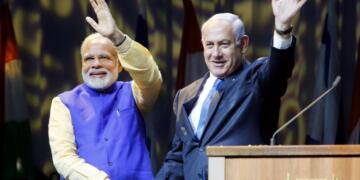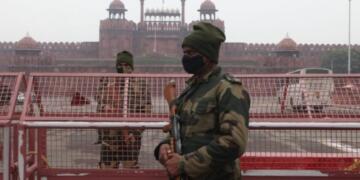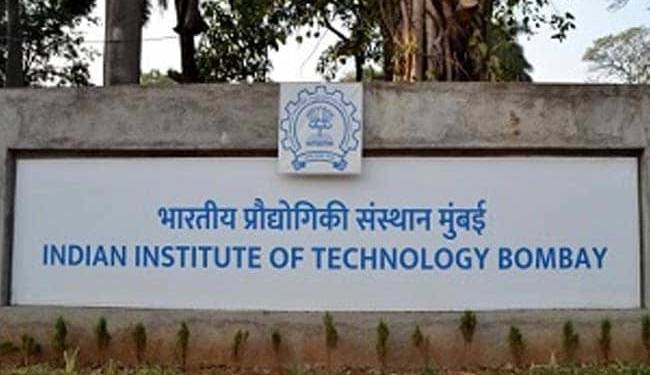At a time when India’s top engineers are solving global challenges in AI, space, and energy, one sociology Professor at IIT Bombay seems more focused on mocking cow urine and vegetarianism.
Professor. Suryakant Waghmore, a taxpayer-funded academic who has made it his mission to attack Hindu traditions, politicize classrooms, and defend indiscipline, all under the garb of social reform. From ridiculing arranged marriages to labelling vegetarian students “militant,” Waghmore has spent more time stirring controversy than shaping minds and now, his actions have finally caught up with him.
Show-Cause Notice Over Politically Charged Op-Ed
On June 12, 2025, IIT Bombay issued a formal show-cause notice to Prof. Waghmore for authoring a politically charged op-ed in the Times of India, titled “Mumbai’s Big Cash Polls”. The article, which addressed the upcoming BMC elections, included his official IIT designation but was published without prior institutional clearance, a violation of Schedule B, Paragraph 5(ii) of the institute’s code of conduct.
Rather than replying through official channels, Professor. Waghmore posted the notice on social media, captioning it: “Another struggle for reforming the IIT system begins!”, sparking further debate on professionalism and protocol within academia.
A Record of Controversial Public Statements
Professor. Waghmore’s social media presence has long been under the scanner. In one particularly viral post, he wrote:
“I am hoping to be pure vegetarian in next life. Hope to have an arranged marriage, take dowry, drink cow urine, vote for BJP and attack Muslims. This life is dedicated to Ambedkarism.”
The post was widely interpreted as a mockery of vegetarianism, Hindu customs, and mainstream political choices, prompting widespread backlash. Critics questioned how such a statement could come from a faculty member at a taxpayer-funded institution and whether such stereotyping is acceptable under academic norms.
Opposition to Vegetarian Preferences on Campus
In 2023, Professor. Waghmore also stirred controversy during a campus debate on mess hall seating arrangements. When vegetarian students many from Jain or upper-caste Hindu backgrounds requested six separate tables out of 129, he accused them of “militant vegetarianism” and enforcing “purity-pollution practices.”
He also publicly supported a student, Abhishek Mali, who deliberately ate non-vegetarian food at vegetarian-only tables. While Mali was fined ₹10,000, Prof. Waghmore called the disciplinary action “disgraceful” and again took to social media to amplify his stance. In an interview, he went further, saying:
“Vegetarianism is violent. Because you prevent your children from being exposed to the sight and smell of meat, which is attractive.”
This view triggered criticism from student groups and the public alike, especially when halal-specific food preferences and Ramadan arrangements on campus have remained largely uncontested.
Alleged Academic Bias and Derogatory Remarks
In 2024, a question included in IIT-Bombay’s PhD entrance exam about “Hindutva ideology” raised concerns among students, who alleged that it was an attempt to politically filter applicants. When this was brought to public attention, Prof. Waghmore responded by mocking protestors with a video of himself dancing a move many described as unprofessional and inflammatory.
He has also made statements comparing a PhD in Humanities to “not drinking cow urine for cancer,” which was seen as disrespectful to Hindu beliefs and culturally insensitive.
Following criticism, Prof. Waghmore deleted his X (formerly Twitter) account, though screenshots of his earlier posts continue to circulate.
Larger Concerns: Ideological Activism Within IIT-B
Professor. Waghmore is not alone. Other faculty members, such as Dr. Anupam Guha, have also come under the spotlight for openly endorsing radical political causes. Dr. Guha, known for his leftist ideology, has backed protests like anti-CAA marches, supported Sterlite agitators, and amplified content from controversial figures such as Megha Vemuri, who has expressed sympathy for Hamas.
Guha is allegedly associated with groups like The Collective and Kosambi Circle, which critics say push anti-national or separatist narratives on academic platforms. His criticism of policies like the abrogation of Article 370 has led to allegations that academic spaces are being used to undermine national interest.
Adding to the campus concerns, Adarsh Priyadarshi, a PhD scholar, currently faces allegations of sexual misconduct, intensifying demands for greater accountability and oversight at IIT-Bombay.
Time for Introspection: Who Guards India’s Elite Institutions?
The unfolding developments at IIT Bombay have triggered a wider debate across India’s academic and public spheres. When premier institutions like IITs built through public funds and taxpayer support are perceived as platforms for ideologically motivated activism, it raises serious questions about academic neutrality, student safety, and respect for India’s diverse cultures.
As institutions strive to maintain global standards in research and innovation, there is a growing call to ensure they also uphold values of integrity, professionalism, and balanced representation.
The controversies surrounding Prof. Waghmore and others are not isolated incidents. They are symptomatic of a larger issue one that challenges the purpose and direction of India’s most prestigious educational spaces.
























